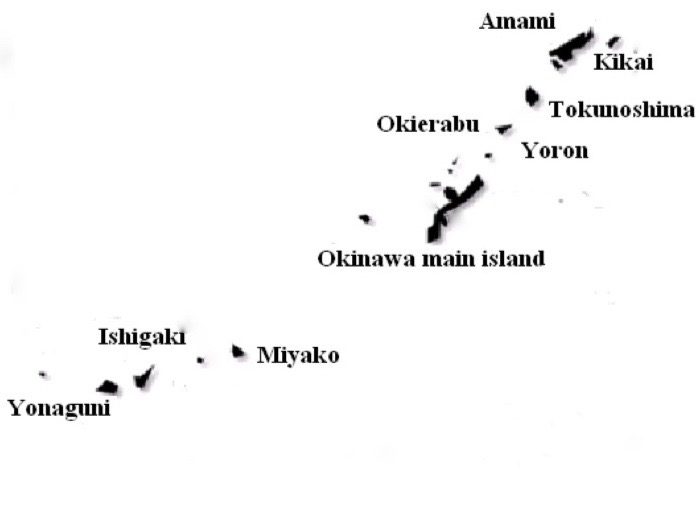“Ruuchuu” (also “Loochoo”, “Lewchew”, “Liuchiu”; Japanese: “Ryukyu”) is what the Okinawans called their island kingdom that stretched south of Kyushu (Japan) and north of Taiwan. In 1372, Ruuchuu became a tributary state of China, though it was never annexed by the empire. Soon, the tiny island kingdom became an important trading hub that connected Southeast Asia and East Asia. Ruuchuu prospered through this trade and their culture began to reflect their interactions with their near and far neighbors.
In 1609, the Satsuma Clan of southern Japan invaded Ruuchuu and took control of the government, though keeping the king in place as a puppet ruler. Under false pretenses, both Satsuma and the Tokugawa Shogunnate sought to gain control of the lucrative trade that Ruuchuu had been conducting for more than two hundred years. Japan finally annexed Ruuchuu outright in 1879 and exiled the royal family to Tokyo.
Attempts by the Japanese government to stamp out Okinawans’ royal past and to “nationalize” them have resulted in a steep erosion of the language and a lack of knowledge of Ruuchuu’s history among younger generations. The word “Ruuchuu” is now used very rarely if at all.

